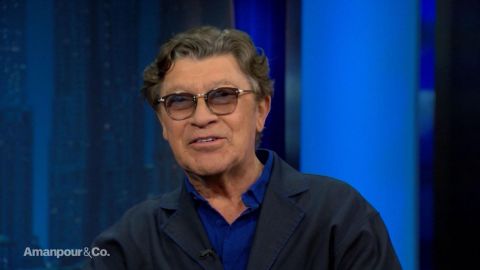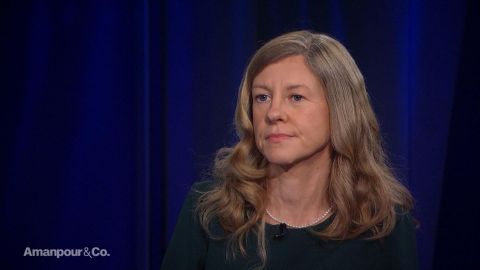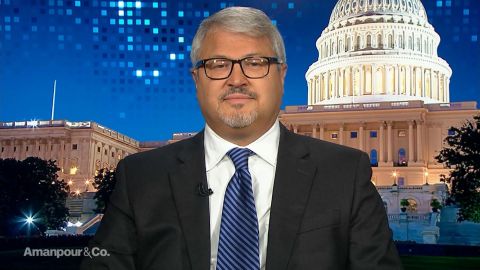Read Transcript EXPAND
CHRISTIANE AMANPOUR: Talk to me about executive power, the limits of executive power, how you, in the end, became alarmed at what the executive, at that time, President George W. Bush was doing with his power.
JACK GOLDSMITH, FORMER HEAD OF THE U.S. OFFICE OF LEGAL COUNSEL: Sure. So, as we see with President Trump, like we haven’t seen maybe ever in this country, the president of the United States is endowed with just extraordinary power, extraordinary discretion to guide the fate of the country. And the president has built up this power over 200 years, basically, either through collecting it on his own or through Congress giving it to him. When I was in the Justice Department in 2003-2004, I was the head of the Office of Legal Counsel, and there are — despite the president’s power, there are legal constraints on the presidency and we were charged with ensuring that those constraints were enforced and I did my best to do that.
AMANPOUR: And it was quite difficult, I mean, there was some very, very powerful people in the White House at that the time, from President Bush to Vice President Cheney to Secretary of Defense Donald Rumsfeld and all their second in commands as well. I mean, it was a very powerful group of people who tended to believe in the same thing, whether it was, you know, the post 9/11 how you’re going to treat terrorists or terrorist suspects under the Geneva Conventions, what about the torture memo which was so fundamental to your experience, the warrantless wiretapping. Describe what you’ve already written about it in one of your books, when you went into the White House and you answered a question that they had, do the Geneva Conventions apply even to terrorist suspects? What happened? What did you say and what did they respond?
GOLDSMITH: That was in the first week of my time at the Office of Legal Counsel in October of 2003. The assumption had been that they did not apply to terrorists in Iraq, and I told them that our analysis suggested that it did, at least for almost all of the terrorists, and they were flabbergasted. They couldn’t believe it. They — I think they expected a different answer.
AMANPOUR: Well, in fact, you write that the lawyer, David Addington, Dick Cheney’s lawyer, was enraged, livid. And you said that he said, you cannot question his decision, referring to President Bush. I mean, that’s pretty extraordinary to — I mean, I guess they would say that, wouldn’t they? But reflect on how that impacted the war and also, how you see any connection to today’s White House and the president wanting maximum authority under his executive power.
GOLDSMITH: Well, to go back to the Bush administration, they believe — they had a broad view of executive power, historically broad view of executive power, and they were faced with what they thought was a serious threat to the nation’s security. And early on, they did everything they could to be as aggressive as possible to meet the threat after 9/11.
About This Episode EXPAND
Jack Goldsmith, former head of the Office of Legal Counsel under President George W. Bush, discusses the limits of executive power with Christiane Amanpour. Katharine Gun explains how she exposed a plot by U.S. security officials to spy on United Nations members in 2003. Former lead guitarist of The Band Robbie Robertson takes Walter Isaacson behind the scenes of his legendary rock career.
LEARN MORE


